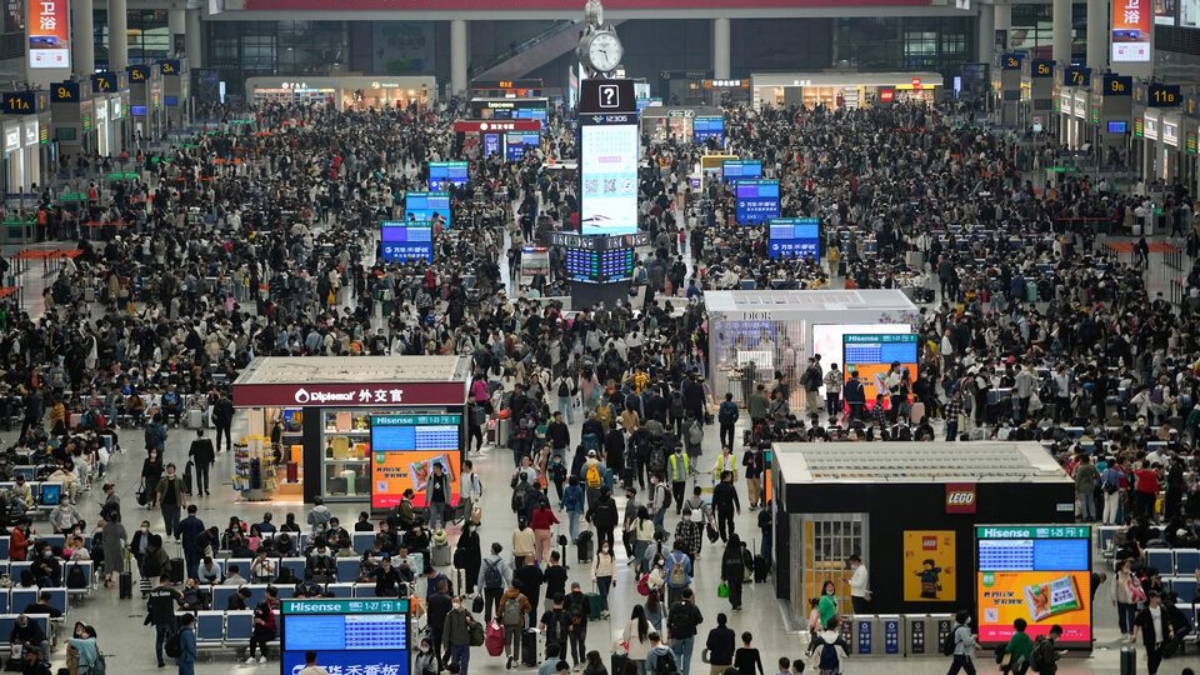In communist China, the first day of May- Labour Day- actually marks the beginning of a five-day holiday. During the recent May Day holiday in China, there was a noticeable surge in travel, with millions of people taking advantage of the extended break. This uptick in travel could be seen as a positive sign, indicating a rebound from the restrictions of the pandemic era.
However, despite the high numbers of travellers, there is an underlying trend that dampens this good news: a significant concern regarding consumer spending patterns.
We dive into the specifics of these trends and explain why the figures from this Labour Day holiday are disappointing despite the high volume of travel.
The purpose of the May Day holiday
The 5-day vacation around May Day is created by rejigging workdays.
Like every year, in 2024 too, 1 May, Wednesday, was a holiday on account of Labour Day. 4 and 5 May were off days because of the weekend. To ensure 2 May is a holiday, the preceding weekend, i.e., 28 April, a Sunday, was a working day. Similarly, for 3 May, the succeeding weekend, 11 May, a Saturday, will be a working day.
The purpose of the rejigging the workdays is to give Chinese workers the opportunity to make holiday plans during the five consecutive days off to boost the country’s consumer spending. The Chinese government had hoped to boost tourism and the economy by encouraging millions of households to travel during the holiday season.
Impact Shorts
More ShortsHere’s how that worked out this year.
A surge in tourism
China’s Ministry of Culture and Tourism reported a staggering 295 million trips made within mainland China during the holiday, marking a 28 per cent increase compared to the 2019 Labour Day period, which lasted only four days. Despite this surge in travel, the economic benefits were not as pronounced as expected. This year’s tourism revenue reached 166.89 billion yuan ($23.6 billion), which, while 13.5 per cent higher than in 2019, shows that the revenue increase did not match the rise in travel.
Drop in spending
The average spending per trip has notably decreased; tourists spent about 565.73 yuan ($80) per trip, down 6 per cent from five years ago, according to CNN.
An estimate by Reuters suggests that the average spending is down much more. Compared to pre-COVID levels in 2019, the spending per head during the holiday period was down by 11.5 per cent, the media house said.
Although there was a 12.7 per cent increase in total spending from last year, shortly after China lifted COVID-19 restrictions, the lower per capita spending indicates a cautious consumer behaviour.
Instead of flocking to the bustling metropolises like Beijing and Shanghai, many travelers have been opting for smaller, tier-3 cities and lesser-known towns. This trend is largely driven by cost considerations, as these destinations generally offer more affordable travel and accommodation options.
Reasons for decreased spending
There are several reasons for this restrained spending. They reflect broader economic challenges within China, the world’s second-largest economy. One significant factor is the ongoing crisis in the property sector. Construction and real estate are a big source of employment and wealth generation in China. A record downturn in this sector has severely impacted spending habits of households, and larger consumer confidence as well.
Moreover, job security has become a major concern for many Chinese. The economic slowdown has led to heightened job uncertainty, making consumers hesitant to spend. This economic backdrop is crucial to understanding why, despite the freedom to travel and the desire for experiences post-pandemic, spending has not rebounded to expected levels.
The consumer sentiment is further evidenced by a survey from the People’s Bank of China, which found that less than one in four residents wanted to spend more, while an increasing share of the urban population preferred to save during the first quarter of the year. This shift in consumer priorities from spending to saving highlights the prevailing economic uncertainty and the direct impact it has on consumer behaviour.
Additionally, the expansion of China’s high-speed rail network and increased car ownership have made these remote destinations more accessible.
With inputs from agencies


)

)
)
)
)
)
)
)
)



